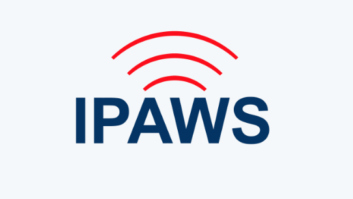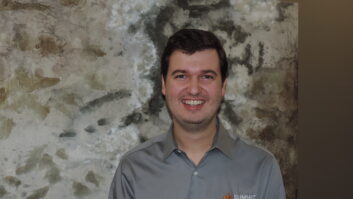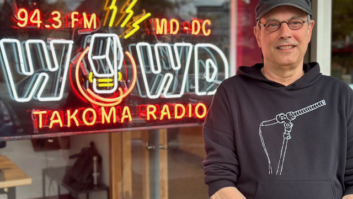
Steve Czaban is a sports radio veteran now celebrating 25 years in the “big leagues,” as they say. He currently handles mornings for Yahoo! Sports Radio and does an afternoon show for Washington’s WTEM(AM/FM). He’s worked in Santa Barbara, Calif., Chicago, Milwaukee, Wis., Charlotte, N.C. and Washington along with a little television. Radio World decided to pick his brain on his experiences in that specialized, growing and flourishing format.
Radio World: What’s the biggest change you’ve seen since you started 25 years ago?
Steve Czaban: The Internet has made the so-called “expert” host obsolete. Every stat can be obtained. Every game can be watched. You are no longer needed to be an information broker. You have to be entertaining and thoughtful. Easy, cheap sports opinions (or takes) are everywhere. The challenge is to connect the dots on a story or issue that is not readily apparent to the average sports fan.
RW: When you started “sports talk radio” was just getting started and it was definitely a niche market. Did you think that sports programming/sports talk would get as big as it has?
Czaban: I remember when WFAN went “all sports” in 1987. They said, “What in the world will they talk about ALL DAY LONG!?” Now, there’s more stuff to talk about in a single day than 24 hours will even allow. Sports is a perfect template for all kinds of issues in society, but it isn’t necessarily partisan, politically, so it only makes sense that it is so pervasive now. It also can be fun and juvenile, so listening to your favorite show is a pleasant release, not something to make you depressed or angry.
RW: What would you be doing if you weren’t doing sports radio or radio?
Czaban: I’d probably be doing something related to golf. Your first love in sports is always the strongest, so I’d likely be raking bunkers on a grounds crew, like Carl Spackler from “Caddyshack.” It doesn’t pay much, but you are done by noon!
RW: What makes you come in to work every day/the satisfaction you get from doing your job?
Czaban: I will quite often become overwhelmed with the feeling that I am adding absolutely nothing to societal good by shouting at people about whether Peyton Manning is, indeed, “overrated.” But then I get these emails and letters from listeners who describe how my show helped get them through a crisis with a family member who was ill, or how it helped connect them to their father who listened to the show from another city, or just the simple fact that the show made them laugh harder than they have in months. Those letters mean so much to me as a host, it’s impossible to overstate it.
RW: If you were put in charge of a radio station or network, what’s a change you’d institute?
Czaban: I would never allow a programmer to let listener emails or social media influence their decision-making. I’ve been amazed through the years what three cranky emails can do to panic management. People are easily angered, but far too lazy to do anything about it. Once you start curbing talent in what they say, or how they say it, a little bit of the station’s soul dies. Most big “controversies” don’t last through a long weekend. Don’t let the “few” program the station or alter your shows for the “many.”












